Hair Transplant in Bangkok
Search and Compare the Best Clinics and Doctors at the Lowest Prices for Hair Transplant in Bangkok
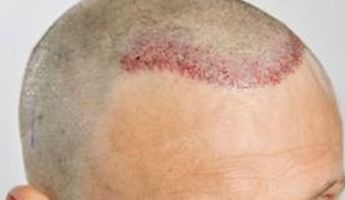
Find the best clinics for Hair Transplant in Bangkok
With Medijump you can browse 32 facilities offering Hair Transplant procedures in Bangkok. The cheapest price available is $1,945 in Bangkok
Hair Transplant in Thailand
Price: $ 1,945
Hair Transplant in Bangkok
Price: $ 1,945
Hair Transplant in Khon Kaen
Price: $ 2,223
Egypt offers the best prices Worldwide
Price: $ 126
From 50 verified reviews
Sofia Martinez, 02 March 2024
Thrilled with the results and the care provided by the hospital staff. dr Dr. Tanongsak wa amazing, he really cared about the end result i wanted
From 34 verified reviews
Bailey Green, 22 November 2027
I recently had a chin augmentation procedure at Bangkok Plastic Surgery and it was a great experience. The location was also convenient and easy to find I'm very pleased with the results and I would highly recommend them.
From 4 verified reviews
leah johnston, 12 March 2023
I had surgery by Dr boonchai around 4 years ago but it was not at this hospital it was at a different hospital. He did a great job so much better than any Australian surgery I have seen. I did plenty of research beforehand and watched lots of other girls surgery diaries by him on YouTube. I thought I'd leave this comment after seeing the bad reviews and googling his name as I was thinking of coming back to Thailand in a couple of years.
From 9 verified reviews
Fitria, 26 July 2024
Many customers appreciate the professionalism of the BHC staff. They feel well-informed and comfortable throughout the process.
From 1 verified reviews
Li Wei, 12 March 2024
Couldn't be happier with my hair transplant results at He Clinic. My hairline looks natural, and the density is just right. I specifically asked for it to be slightly asymetrical so it wasnt too obvious ;)
From 6 verified reviews
FFFaFiat, 30 January 2023
The hospital is very nice, clean and gorgeous. All staff is so kind and serve with smile. Ms.Yok,sales, took very good care of me. So impressive!
From 4 verified reviews
Jacinthe, 02 August 2024
Good service.
From 2 verified reviews
Briony, 01 August 2024
Great experience from start to finish. My hair looks natural and I've received so many compliments.
From 2 verified reviews
Basimah , 30 July 2024
The hair and scalp treatment here is top-notch. My hair feels thicker and my scalp is much healthier.
From 2 verified reviews
Romana, 21 May 2024
Incredible results! My hair is fuller and healthier than ever. Highly recommend their treatments.
From 2 verified reviews
Eirene, 24 July 2024
Amazing results! My skin feels firmer and looks younger. Highly recommend KK DERM Clinic.
From 2 verified reviews
kaia, 18 June 2024
Topical cream cleared my acne in weeks, but consistent use is key for lasting results.
From 2 verified reviews
See Hoe, 06 March 2024
I could not be happier than this, I had a liposuction here and was very impressed with the results and their team. The doctor is very skilled and open. They are amazing!
From 2 verified reviews
Edna Mcintosh, 08 April 2023
Highly recommend this clinic for liposuction. I have lost about 2-3 inches on my tummy and it was beyond my expectations. I can’t thank them enough!
From 2 verified reviews
April Salazar, 01 January 1970
I am pleased with the results so far. The procedure was painless and my wound has been healing nicely and quickly.
From 2 verified reviews
Ilez Voronin, 18 April 2024
My Thai friend recommended this clinic to me, and I have no regrets. The first consultation and the entire procedure were impressive. Overall, a great experience. Many thanks!
From 2 verified reviews
Zara, 03 June 2024
The clinic is very clean and modern. The staff took the time to explain each step of the treatment process.
From 2 verified reviews
Barry Daniels, 11 July 2024
Dr. Benz and her team were fantastic! She genuinely listened to my concerns and clearly explained how the procedure would work, including the post-op care. I truly appreciate all of you!
From 1 verified reviews
Stanley Chew, 25 November 2022
My results have been amazing. Many of my friends have said I look younger. I must say that Dr. Fon did an outstanding job. Thank you for giving me back my confidence.
From 4 verified reviews
Saoirse, 31 July 2024
HHH Natural Hair Transplant Center gave me my confidence back. The results are fantastic and the service was top-notch.
Compare Before & After Photos of _procedure_photos.phpHair Transplant
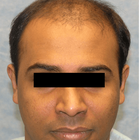
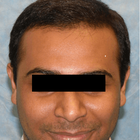
Front view
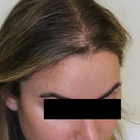
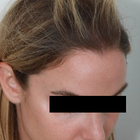
Half-side view
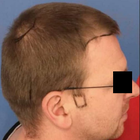
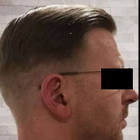
Full-side view
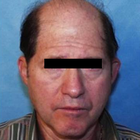
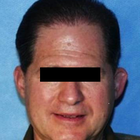
Front view
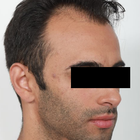
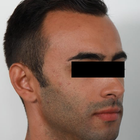
Half-side view
WHY US?
At Medijump, we're making medical easy. You can search, compare, discuss, and book your medical all in one place. We open the door to the best medical providers worldwide, saving you time and energy along the way, and it's all for FREE, no hidden fees, and no price markups guaranteed. So what are you waiting for?

Free

Best Price

Widest Selection

Risk-Free
What you need to know about Hair Transplant in Bangkok
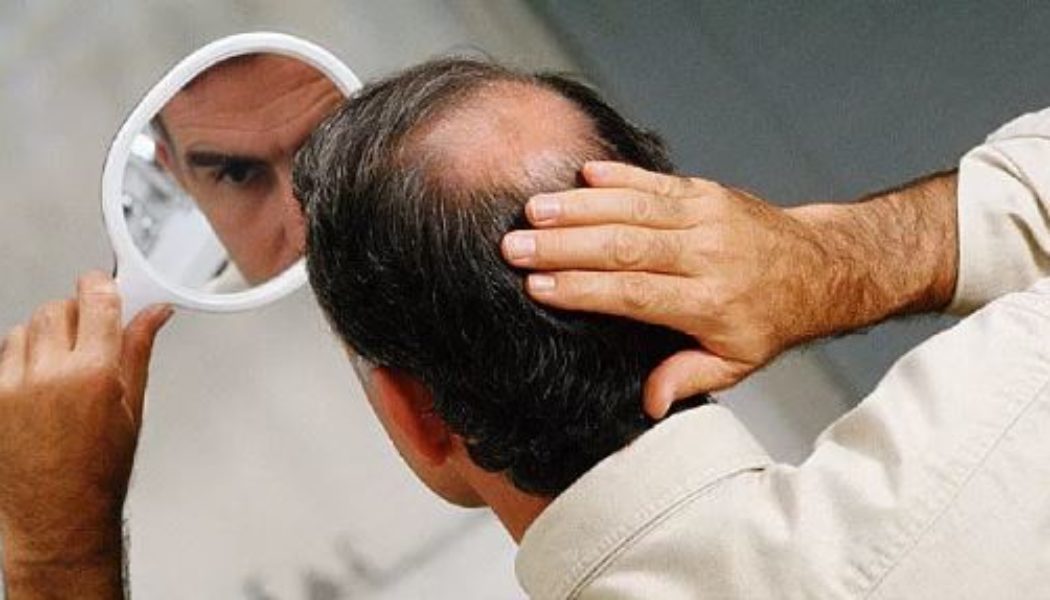
Hair Transplantation, also known as hair restoration surgery, is the surgical process of moving hair follicles from one part of the body that is rich in hair (known as a donor site) and embedding them at the the bald area of the head (recipient site). The medical course of action that aims at addressing hair loss issues and improving aesthetics. While there are many causes of hair loss, the most common reason, especially for men, is genetics. Hereditary hair loss as men age is the number one leading factor of baldness.
It is a minimally invasive procedure, performed under local anesthetic and is most commonly used to treat male baldness, but the technique can also be used to restore eyelashes, eyebrows, beard hair and to fill in scars. The procedure usually lasts between 4 to 8 hours, depending on the number of grafts needed. This procedure is a long-term solution to hair loss, with most patients experiencing significant improvement in hair growth after six months to a year.
Why do people experience hair loss?
We lose an average of 100 hairs a day, however, these hairs are immediately replaced by new hairs growing at the same time. Hair loss can occur suddenly or gradually and it may affect your scalp or your entire body, depending on what’s causing it. Other causes of hair loss may include:
- Stress - a lot of people may experience hair thinning for several months due to a physical or emotional shock. However, this type of hair loss is only temporary.
- Certain Hairstyles and treatments - hairstyles that pull your hair like tight pigtails, ponytails or braids can actually cause traction alopecia. Permanent hair treatments and hot oil treatment may also lead to hair loss; these hair treatments cause inflammation to the hair follicles. If there is scarring, hair loss may be permanent.
- Radiation Therapy - for example, during cancer treatment.
- Certain medical conditions and hormonal changes - in women, hormonal changes due to pregnancy, childbirth menopause or thyroid problems may cause temporary or permanent hair loss. As for medical conditions, hair loss may be due to alopecia, scalp infections like ringworm or a hair-pulling disorder known as trichotillomania.
Sudden hair loss may also be a sign of a specific medical condition that will require treatment. You will need to consult your doctor if you experience more than your usual hair loss whenever you are combing or washing your hair and also if you encounter a sudden patchy loss of hair.
A hair transplant is a common treatment performed on people who are experiencing baldness due to aging and heredity factors. However, if you are completely bald with absolutely no hair left, then this type of treatment may not be applicable for you, as you won't have sufficient donor hair to supply.
What is the cost of Hair Transplant in Bangkok?
The cost of Hair Transplant in Bangkok is typically influenced by various factors. These may include the experience and reputation of the surgeon, the complexity of your case, and the total number of grafts needed. Moreover, the pricing strategy followed by the medical establishment also plays a significant role. Some clinics charge based on the number of grafts transplanted, while others might price the procedure as a package. The exact price can therefore only be determined in consultation with a trusted clinic. While it can appear costly to some, the Hair Transplant is an investment in one's appearance and self-confidence.
What Does The Procedure Involve?
The hair transplant procedure involves taking hair from your Donor Site and transferring it to the area(s) lacking in hair, the Recipient Site, and a local anesthetic will be applied before the procedure begins to limit any discomfort.
There are two main methods used in a hair transplant procedure:
- Follicular Unit Transplantation (FUT) - strips of tissue will be removed from your donor area, these strips will be cut into individual follicular units. Small cuts will be made on your scalp where the follicular unit grafts will be placed. This method is becoming less popular.
- Follicular Unit Extraction (FUE) - individual hair follicles will be directly extracted from your donor area and moved to your recipient site using a specialist microsurgical needle. FUE is now the preferred technique for hair transplants as it will not leave a linear scar at the back of the head.
Procedures are undertaken by a fully qualified technician and usually involve the extraction of around 3,000 grafts, going up to 4,000. Any more, and it will likely require two separate sittings to complete.
How Long Should I Stay in Bangkok for a Hair Transplant Procedure?
Hair transplants are usually performed as an outpatient procedure. Thus, you will be able to go back to your hotel immediately after. Both methods used for Hair Transplant treatments usually take 4-8 hours to complete. With FUE technique, there are no stitches or staples to be removed, so you won't need to stay in Bangkok for long after the procedure, just allow a day or two to be sure before traveling home.
You should expect to pay the clinic another visit the day after the treatment so the doctor can remove the bandage, examine the areas of intake and transplantation of follicles, before washing your hair using a special technique that you will learn to perform by yourself. Finally, the doctor will provide you with a special shampoo that will help to restore the skin.
What's the Recovery Time for Hair Transplant Procedures in Bangkok?
Your scalp will continue to be sensitive to pain for a few days, during which time you should continue to take the medications provided by the doctor. On top of the pain killers and anti-inflammatory meds, you may also be given antibiotics to lessen the risk of infection, as uncommon as this may be.
You should expect to return to work and your daily routine, including exercise, after 5 days. However, the signs of a hair transplant will remain for at least another 2-3 weeks, at which point the newly transplanted hairs will start to fall out - but don't be alarmed! This is to be expected as you've just had a follicle extraction, so dead hair will simply make way for new hair over the coming weeks and months.
If the average person's hair only grows at a centimeter per month, then it will take some time before you can wear your hair long again. You could expect to display short and consistent hair just 4-6 weeks after the treatment.
What sort of Aftercare is Required for Hair Transplant Procedures in Bangkok?
After the procedure is complete, anti-swelling medication and painkillers will be available and you'll be provided with various essentials to see you through the days immediately following. Post-op items may include; specialist shampoo, lotion, multivitamins, a special hat, a headband, neck pillow, and wound dressing.
Having already been provided with your post-op aftercare products, you may also be offered Platelet Rich Plasma (PRP) Therapy to help stimulate the hair follicles and encourage hair growth. This is where a small amount of blood is taken, rich in plasma, which is then injected into the Recipient Site.
What's the Success Rate of Hair Transplant Procedures in Bangkok?
The success rate for hair transplants is one of the highest, at 98% and is considered the only truly effective remedy for hair loss.
The effectiveness of Hair Transplant treatments is significantly shaped by the surgeon's expertise who executes the process. A seasoned and competent surgeon employs sophisticated methods to prevent harm to the transplanted hair follicles during the process, which leads to a higher likelihood of success. Additionally, the ability of the surgeon to place the grafts in an attractive manner that resembles natural hair growth further enhances the perceived successfulness of the result.
Beyond the competency of the surgeon, the overall health status and lifestyle choices of the patient greatly impact the treatment's effectiveness. Subpar habits such as excessive smoking and alcohol intake can obstruct the recovery process and influence the result adversely. Illnesses like diabetes can also interfere with the likelihood of success.
Consideration of the donor hair's quality is another aspect that may affect the success of the procedure. Generally, those with robust, plentiful hair in the donor region have a higher success rate as compared to individuals with sparse or poor-quality hair. The availability of more follicles for transplantation yields better results. A detailed examination is carried out before the Hair Transplant to verify the quantity and quality of the donor's hair.
Are there Alternatives to a Hair Transplant?
Laser therapy is one alternative to a hair transplant. During this procedure, a low-level laser device will be used as a treatment for a hair loss specifically caused by genetics. This low-level laser with a wavelength of 650 nanometres can actually stimulate your hair growth. However, long term effects for this type of alternative still remains uncertain.
PRP Therapy is another alternative you can consider. This type of treatment will make use of your own blood to promote hair growth. Your blood will be spun in a centrifuge to separate your blood’s plasma component from your red and white blood cells. Plasma contains many growth factors that promote hair growth when injected into the scalp.
Other non-surgical alternatives could include simply shaving all your hair off, trying other hairstyles or using a wig or hairpiece.
How do FUT and FUE Compare?
The two most common techniques used are the Follicular Unit Transplant (FUT) and the Follicular Unit Extraction (FUE). How do they compare?
1. FUT, also referred to as FUSS (Follicular Unit Strip Surgery), involves the removal of a strip of skin from the back of the head containing lots of hair follicles, which is stitched up and hidden by the surrounding hair. Then the strip of follicles is divided into 500-2,000 tiny grafts containing just a few hairs. These are then embedded across the bald area of the head.
2. FUE does not require a strip of skin to be removed, instead, the hair follicles are individually removed from the donor site and positioned across the bald area in tiny slits created by a scalpel or needle.
What are the Risks Associated with Hair Transplant?
Like any surgical procedure, Hair Transplant carries certain risks, although they are relatively rare and usually minor if performed by a skilled and experienced surgeon.
Some potential risks and side effects could include:
- Scarring is the most common side effect (only applicable to FUT)
- Infections
- Temporary loss of sensation around the surgical sites
- Inflammation of hair follicles (folliculitis)
- Temporary scalp pain, itching, and swelling.
- Unnatural-looking hair growth
Whilst the information presented here has been accurately sourced and verified by a medical professional for its accuracy, it is still advised to consult with your doctor before pursuing a medical treatment at one of the listed medical providers
No Time?
Tell us what you're looking for and we'll reachout to the top clinics all at once
Enquire Now

Popular Procedures in Bangkok
Prices Start From $153

Prices Start From $500

Prices Start From $4

Prices Start From $500

Recommended Medical Centers in Bangkok for Hair Transplant

- Interpreter services
- Translation service
- Religious facilities
- Medical records transfer
- Medical travel insurance
- Health insurance coordination
- TV in the room
- Safe in the room
- Phone in the room
- Private rooms for patients available

- Interpreter services
- Translation service
- Religious facilities
- Medical records transfer
- Medical travel insurance
- Health insurance coordination
- TV in the room
- Safe in the room
- Phone in the room
- Private rooms for patients available

- Interpreter services
- Translation service
- Religious facilities
- Medical records transfer
- Medical travel insurance
- Health insurance coordination
- TV in the room
- Safe in the room
- Phone in the room
- Private rooms for patients available

- Interpreter services
- Translation service
- Religious facilities
- Medical records transfer
- Medical travel insurance
- Health insurance coordination
- TV in the room
- Safe in the room
- Phone in the room
- Private rooms for patients available

- Interpreter services
- Translation service
- Religious facilities
- Medical records transfer
- Medical travel insurance
- Health insurance coordination
- TV in the room
- Safe in the room
- Phone in the room
- Private rooms for patients available

- Interpreter services
- Translation service
- Religious facilities
- Medical records transfer
- Medical travel insurance
- Health insurance coordination
- TV in the room
- Safe in the room
- Phone in the room
- Private rooms for patients available

- Interpreter services
- Translation service
- Religious facilities
- Medical records transfer
- Medical travel insurance
- Health insurance coordination
- TV in the room
- Safe in the room
- Phone in the room
- Private rooms for patients available

- Interpreter services
- Translation service
- Religious facilities
- Medical records transfer
- Medical travel insurance
- Health insurance coordination
- TV in the room
- Safe in the room
- Phone in the room
- Private rooms for patients available

- Interpreter services
- Translation service
- Religious facilities
- Medical records transfer
- Medical travel insurance
- Health insurance coordination
- TV in the room
- Safe in the room
- Phone in the room
- Private rooms for patients available

- Interpreter services
- Translation service
- Religious facilities
- Medical records transfer
- Medical travel insurance
- Health insurance coordination
- TV in the room
- Safe in the room
- Phone in the room
- Private rooms for patients available
Hair Transplant in and around Bangkok
About Bangkok
Bangkok is the Capital city of Thailand and is ranked as one of the world’s most popular holiday destinations. The city holds a magical spell over its visitors and is full of beautifully decorated Buddhist temples, Royal palaces, museums, restaurants, and nightlife. Recently, the city has become the gateway to a large number of medical tourists. According to a BBC report, more than 80% of all medical tourists travel to Thailand, aiming to get the best medical attention, of which Bangkok and Singapore remain the most popular destinations for expats. The trend is increasing by 10% to 15% per year and has been a strong economic driver for the country, next to the tourism industry.
Medical tourism in Bangkok is highly rated within the industry for many reasons, including:
Cost-Efficient Treatments
Experienced Medical Professionals
Top-Tier Facilities
Advanced Technology
Quality Dental Care: Short Waiting Times
Comfortable Recovery:
Popular areas in Bangkok
For starters, Bangkok is a well-developed city. There are plenty of places to stay; shop and explore and deciding where you want to stay can be a difficult decision.
One way to choose the place you will likely stay is to prioritize your activities. For example, if you want to shop then Sukhumvit may be the right district. This 18-kilometer long road is the commercial center and some of the best shopping malls and retail markets are dotted along this road.
The Siam district would be a great place to stay as the more popular and trendy shopping centers can be found here with a great selection of restaurants. There are various other attractions too, the Siam Ocean World, Kidzania, Erawan Shrine, Madame Tussauds, and the BACC, Bangkok's biggest art gallery, and cultural center.
Other popular tourist locations are Sukhumvit, Pratunam, Silom, Chinatown, Khaosan and the famous Bangkok Riverside.
Weather and climate in Bangkok
Bangkok endures a tropical monsoon climate, it is hot and humid for the vast majority of the year with temperatures reaching thirty degrees centigrade. The best weather for visiting tourists in Bangkok is experienced between December and February as the temperature is much cooler and
There are three seasons in Bangkok –
-
The hot season that stretches from March to June
-
The Monsoon or the rainy season, which starts in July and lasts until October
-
The cool season is generally late November and ends late February.
Getting around in Bangkok
There are two airports that serve Bangkok. All the international flights land at Suvarnabhumi International Airport and almost all of the domestic carriers, operate from Don Mueang Airport.
It takes sixty minutes to travel between the two airports and you must check with the airlines which airport your carrier is operating out of. You must also remember to check in for your flight at least two hours in advance to avoid the last minute rush.
Within the city, sky-trains and the underground MRT trains are the best ways to avoid heavy traffic. Taxis and tuk-tuks can also be used for shorter journeys around the city. Most taxis have meters, and you should avoid any that don't to protect yourself from scams. Ask your hotel to help you call for a cab, as they often have relationships with trustworthy companies. For a scenic view of the city, try hopping on a riverboat down the Chao Phraya River.
Tourist Visas in Bangkok
If you wish to visit Bangkok, you will have to go to your nearest Thai embassy to get a visa. The Thai government has a bilateral trade agreement with various countries. It allows citizens of 64 countries to enter without any visa. They can stay for a maximum period of thirty days before having to leave the country.
The latest price for a tourist visa to Thailand depends on the type of visa you apply for and your nationality.
For citizens of most countries, the following visa fees apply:
- Single-entry visa: 2,000 THB (approximately $65 USD)
- Multiple-entry visa: 4,000 THB (approximately $130 USD)
You can pay the visa fee in Thai baht (THB) at the Thai embassy or consulate where you apply for your visa.
To apply, you’ll need to visit a Royal Thai Embassy or Consulate in your home country. Required documents typically include:
- A valid passport with at least six months remaining before expiration
- A completed visa application form
- One recent passport-sized (4 x 6 cm) photographs
- Round-trip air ticket or e-ticket (paid in full)
- Proof of sufficient funds to cover your expenses (at least 10,000 THB per person or 20,000 THB per family)
- Proof of Hotel or private accommodation booking
Be sure to apply at least four weeks before your travel date. You can make your application online at the Thai E-Visa official website https://thaievisa.go.th/.
Additional Information
-
The local currency is the Thai Baht. Before you travel to Bangkok, it is advisable that you arrive with local currency. Your currency is exchangeable at most banks in Bangkok and at exchange bureaus. You will have to look out for specialized signboards that read “Bureau De Change”. 1 US Dollar is roughly 34.5559 THB as 2023. Exchange of foreign currency at the airport is also possible and it may not be at the best rate possible.
-
Bangkok banks and retail outlets accept all types of credit and debit cards. There are ATMs in most of the popular places for the convenience of tourists. Hotels and restaurants also accept credit and debit cards. Tipping is mandatory at ten percent of the value of the goods and services.
-
Thai is the official language of the country. Nevertheless, a majority of the population will speak and understand English.
-
Buddhism is the official religion of the city and yet nowhere else in the world will you find a sterling example of cultural diversity. A massive 94 percent of the city’s population practices Buddhism and the remaining six percent follow the other world religions such as Islam, Hinduism, and Christianity.
-
There are a lot of festivals and holidays celebrated in Bangkok. The Gregorian and the Chinese New Year are the major festivals. A host of Buddhist festivals such as the Makha Bucha Day and the Visakha Bucha Day are also celebrated. Important dates in relation to the royal family are also prominent as the people celebrate the coronation day of the Monarch.
Popular Searches
- Plastic Surgery in Thailand
- Dental Implants in Thailand
- Hair Transplant in Thailand
- Breast Augmentation Thailand
- Gastric Sleeve in Thailand
- Gender Reassignment Surgery in Thailand
- Laser Hair Removal in Bangkok
- Botox in Bangkok
- Dermatology in Bangkok
- Breast Augmentation in Bangkok
- Coolsculpting in Bangkok
- Veneers in Turkey
- Hair Transplant in Turkey
- Rhinoplasty in Turkey
- Stem Cell Therapy in Mexico
- Rhinoplasty in Mexico
- Liposuction in Mexico
- Coolsculpting in Tijuana
- Rhinoplasty in Korea
- Scar Removal in Korea
- Gastric Sleeve in Turkey
- Bone Marrow Transplant in India
- Invisalign in Malaysia
- Plastic Surgery in the Dominican Republic
- Tummy Tuck in the Dominican Republic
- Plastic and Cosmetic Surgery in Poland
- Rhinoplasty in Poland
- Hair Implant in Poland
- Dental Implants in Poland
- IVF in Turkey



















